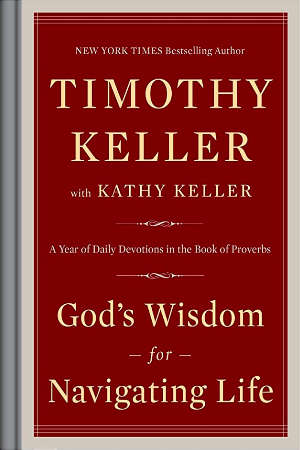
Joel—Redeeming the Lost Years | Sermon By W. T. Holland
Text: “I will restore to you the years the locust hath eaten, the cankerworm, and the caterpillar, and the palmerworm, my great army which I sent among you” (Joel 2:25).
Scripture Reading: Joel 2:18–27
Introduction
In most lives there are periods, which, as far as productive labor, happiness in our hearts, or worth to the kingdom of God are concerned, are lost years. Joel spoke of such a gap in the life of his nation as “the years the locust hath eaten.”
Joel’s message was called forth by a national calamity. A devastating plague of locusts had stripped the land bare of food for man and beast. This was followed by famine, poverty, and misery. Such a time called for some sure word from the Lord, and Joel was God’s spokesman. Joel has been aptly called “the prophet of consolation.”
This prophecy of three chapters, having only seventy-three verses, is made up of two distinct divisions: the first (1:1–2:27) calls the nation to repentance and prayer; the second (2:28–3:21) records God’s promise to hear the cry of his people, remove the cause of their suffering, and restore prosperity and enrich them spiritually.
The words of our text, “I will restore to you the years the locust hath eaten” (2:25), form a summary statement, looking back to the national calamity and forward to the time of revival and restoration. Joel sounded a relevant note. To Israel, God promised years of plenty to redeem the lean years. To us, God promises to redeem the years we have lost if we will repent of our sins and return to him.
I. Note the cause of lost years.
A. Years are lost because of fear and indecision. They are lost to God, lost to his church, and lost to oneself. An adult woman, the mother of teenage children, came down the aisle all alone before a great Sunday morning congregation to confess Christ and ask for baptism. Her husband, not a Christian, admired her courageous act and said, “I could never have the courage to do that before all those people.” He could, but to date he hasn’t.
B. Years are lost because of complacency. Three people attended the funeral of an eighty-four-year-old man who had no surviving relatives. He had lived in his town thirty-five years but had never joined any local congregation. When asked, three days before his death, why not, he replied, “I meant to; I just put it off.”
C. Years are lost because of self-centeredness. Some people live for themselves and unto themselves. For them life is a circle that grows smaller and smaller. This violates one of life’s fundamental laws. Paul expressed it this way: “For none of us liveth to himself, and no man dieth to himself” (Rom. 14:7).
D. Years are lost because people do not discern between the important and the unimportant in their lives. One of Methodism’s greatest preachers had been, as a young man, the owner of a bottling plant in a small Arkansas city. A kindly pastor had helped him to understand his divine call.
He would say, “When you die and enter heaven, someone will ask, ‘What did you do on earth?’ And you will have to answer, ‘I made red soda pop.’ ” There is nothing disgraceful about making red soda pop, but this young man was called to be a minister of Jesus Christ.
E. Years are lost because people are spiritually immature (see Jesus’ allegory of children playing in the marketplace in Luke 7:31–32). Jesus showed the folly of playing at religion. For example, consider a person who, because of some trifle of no consequence, holds a grudge against a pastor or church member and deliberately pouts for ten years, staying away from the church and all its services. Those are lost years.
F. But most tragic of all, years are lost because of sin. Dr. E. Stanley Jones told of a medical missionary who ran away with his secretary and deserted his wife and children. When Dr. Jones urged him to return to God and to his family, he replied, “I am called to organize another religion—less rigid, more liberal, more of the love of God.”
What a pathetic defense of indefensible conduct! Years later, as this former missionary lay dying, he told Jones, “I’m an old prodigal that never returned” (E. Stanley Jones, Conversion [New York: Abingdon, 1959], 205). In the end he repented, but the locusts of sin had eaten up the years of his life.
II. Note the cost of lost years.
The locusts, God’s “great army” sent among the Israelites because of their sins, brought Israel to famine and ruin. To us, on every level, in every relationship, the lost years are costly.
A. Costly to the lives of individuals.
1. Because of fear and indecision, some people lose their immortal souls and go down to a devil’s hell.
2. Because of complacency, some people miss the blessings of the fellowship of God’s people.
3. Because of self-centeredness, some people miss the joy of large horizons, and their world shrinks until
it hems them in.
4. Because of spiritual immaturity, some people’s lives are soured, misdirected, and permanently off-center. An unforgiving spirit renders a person unable to receive forgiveness.
B. Costly to the churches. The business of a church is too important for anyone to indulge personal grievances. Christ calls us to be spiritual adults (Eph. 4:15). In the second year of a certain minister’s pastorate, a female member became offended, dropped out of the church, and let it be known that as long as that minister was the pastor, she would not set foot inside the door.
After a fruitful pastorate of twelve years, this minister went on to another church. The first Sunday after his departure, the woman returned. She told those at the church that she forgave them for not “taking a stand” and leaving the way she did.
But she made the mistake of saying to one faithful member, “Oh, it is so good to be back in my church.” This faithful soul replied, “I’m glad you feel that way. A number of us have worked hard to keep it alive the ten years you have been gone.”
C. Costly to the cause of righteousness. With so many who are indifferent, it is a marvel of grace that the average church can accomplish what it does. The gospel has been preached for two thousand years, but this is still a lost world. Why so? There is too much mud on the wheels of the Lord’s chariot, his church.
III. Last of all, note the cure for lost years.
Lost years can be redeemed. This is the promise of God: “I will restore to you the years the locust hath eaten.” How are we to make up for the lost years?
A. For some of us this means recasting our lives around a new center. Only God can do this as we respond through an act of utter faith. In 2 Corinthians Paul describes the conversion experience: “He died for all, that they that live should no longer live unto themselves, but unto him who for their sakes died and rose again” (5:15 ASV). For a person to live for himself and unto himself is for life to revolve around the wrong center. Christ is the only true center for a life.
B. For others, this means returning to God in sincere repentance that they may be restored. If we truly repent, God will restore us, and we will be led by his Spirit to adopt a new approach to life’s problems.
C. But for still others, this means redoubling their efforts for God. A good man made what was for him a very large pledge toward the budget of his church. His daughter protested, “Daddy, that is far more than a tithe for you.” ”Yes,” he replied, “I know it is. But if God will let me live, maybe I can make up some of the tithe I owe him for the years before I started tithing.”
Conclusion
The consoling truth is this: it is God who restores us if we return unto him with all our hearts.






